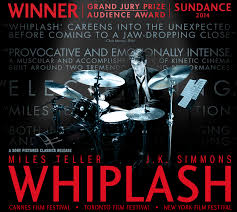Full disclosure: Despite the urging of my inner child, I am yet to see Inside Out, so that section of the preview will focus on the awards buzz around it rather than the actual screenplay itself.
Only two of the movies in the category this year are true originals, but that is the way this category works. 
An original screenplay is any that isn’t directly lifted from another source.
So, it doesn’t matter that Straight Outta Compton, Bridge of Spies and Spotlight are based around events and characters that happened and existed.
While we’re on about rules, in general terms an ampersand (&) is used when two or more writers have worked directly together on a project, while an ‘and’ is used when parties work separately on a project (for example, with Bridge of Spies, Joel & Ethan Coen worked together and Matt Charman worked separately).
Not many characters or happenings were actually invented or original for those movies, but this category is here to avoid lopping films together with others that copied and pasted direct dialogue and twists from other sources.
Traditionally, these categories are used to either award a true original (Her, Eternal Sunshine of the Spotless Mind), or make up for films that are going to miss out on winning the big prize (Fargo, Pulp Fiction).
This year it looks like it will be the latter.
Who else could have been nominated?
Quentin Tarantino’s The Hateful Eight was the only original screenplay to miss out here after being nominated in the Golden Globes (Aaron Sorkin won that award for Steve Jobs and wasn’t nominated in the adapted section).
Among the Writers Guild Awards nominees, Sicario by Taylor Sheridan and Trainwreck by Amy Schumer were cast aside in these nominees for Inside Out and Ex Machina.
Elsewhere, David O. Russell is a perennial nominee who couldn’t fit in this year for Joy and the many heads behind The Revenant couldn’t get it a writing nomination despite it’s likely Best Picture win.
Who as nominated?
Matt Charman and Ethan Coen & Joel Coen for Bridge of Spies
Alex Garland for Ex Machina
Pete Doctor, Meg LaFauve & Josh Cooley (screenplay by); Pete Doctor & Ronnie del Carmen (original story by) for Inside Out
Josh Singer & Tom McCarthy for Spotlight
Jonathan Herman and Andrea Berloff (screenplay by); S. Leigh Savidge & Alan Wenkus and Andrea Berloff (story by) for Straight Outta Compton
The nominees:
Matt Charman and Ethan Coen & Joel Coen for Bridge of Spies
Why they will win: Bridge of Spies succeeds in bringing together an aged world, while making morals and judgements universal. Drawing sympathy for an admitted spy, a lawyer who is putting his family through hell and Germans who are doing smart business is hard, and Bridge of Spies pulls it off, while maintaining sharp humour.
Why they wont win: Bridge of Spies is just happy to be there and have an excuse to put Tom Hanks on stage presenting an award. While it is an excellent film, it hasn’t won anything of note and wont on the big night.
Alex Garland for Ex Machina
Why he will win: Garland created the most complete film of the bunch with the most articulate questions asked. Garland’s exploration of humanity and technology is excellent and wrapping it up in such a thrilling way was inspired and makes this the best screenplay in this category.
Why he wont win: Yet, Ex Machina has made no impression on the awards season. It couldn’t get Alicia Vikander a supporting actress nomination and it hasn’t won anything of note. This looks like a runner up, but who really cares when you can just go ahead and tear up the fucking dance floor, dude?
Pete Doctor, Meg LaFauve & Josh Cooley (screenplay by); Pete Doctor & Ronnie del Carmen (original story by) for Inside Out
Why they will win: Inside Out continues a tradition – started by Toy Story – of animated films sneaking into nominations in this category. The sheer amount of children pulling on their parents/grandparents sleeves to vote for this movie has to get something right?
Why they wont win: No animated film has ever won, so it probably wont get something. Inside Out would have been chuffed to get this nomination and will have focused its awards campaign on the Animated Feature category instead of this one.
Josh Singer & Tom McCarthy for Spotlight
Why they will win: The Writers Guild Award may have just sown this category up. But Spotlight certainly deserves consideration, with their ability to make a film without any real character development, any romance or any real action into a thrilling and enthralling Singer & McCarthy managed to craft a classic.
Why they wont win: Spotlight’s favoritism in the Best Picture category may have turned voters to other films so they get recognised. But I’m really clutching at straws here.
Jonathan Herman and Andrea Berloff (screenplay by); S. Leigh Savidge & Alan Wenkus and Andrea Berloff (story by) for Straight Outta Compton
Why they will win: If this category was centered around half of a film rather than a full one, Straight Outta Compton might just pull it off. Maybe voters turned off the film halfway through and circled it on their ballots. The groundswell of support for Compton has to count for something, with the only film to really represent colour in the entire ceremony, it could pick up some serious ground.
Why they wont win: As nice as that montage before the credits was, Compton really trails off in the second half and that is the result of a disappointing third act in the script. Compton quickly faded from awards consideration and it’s unlikely it could pull something out here.


